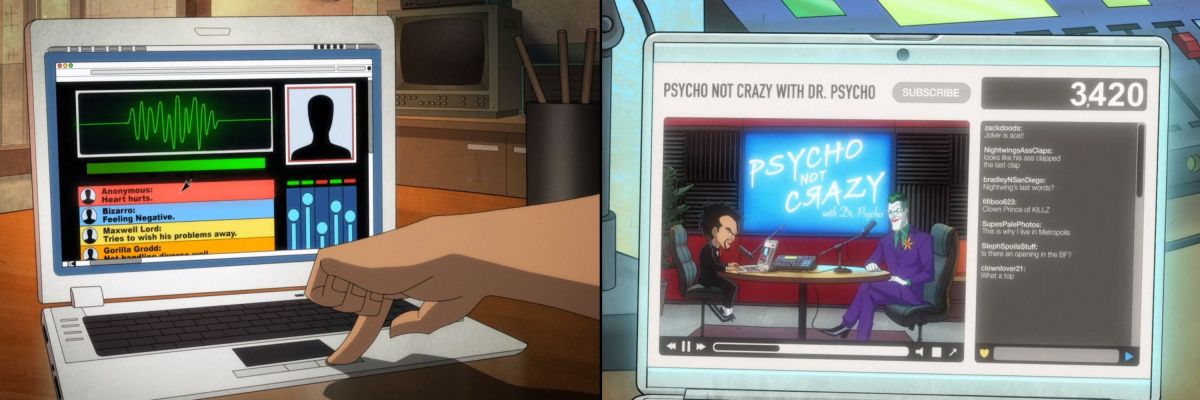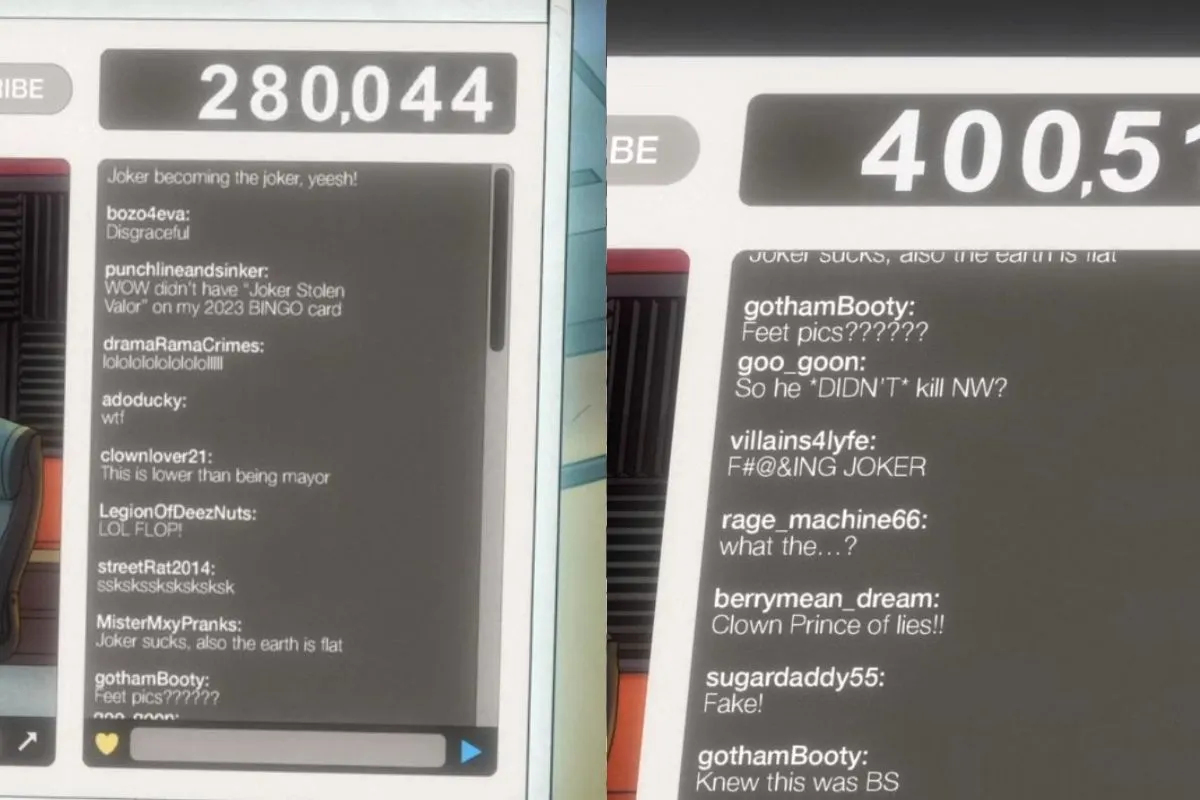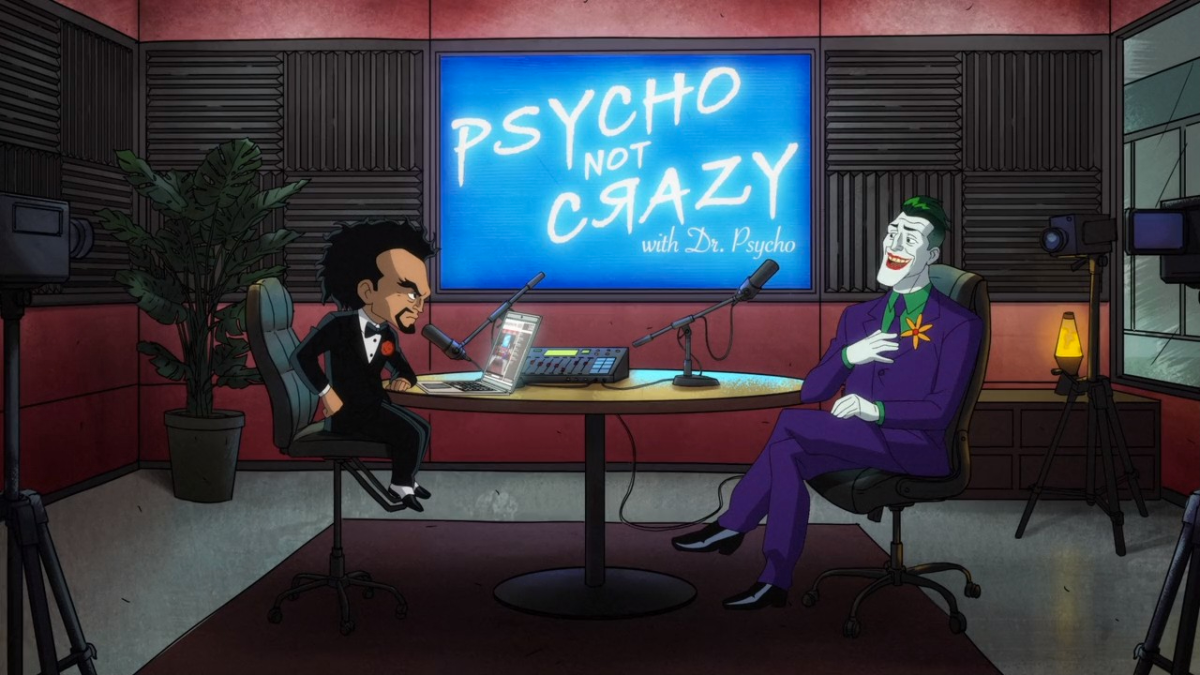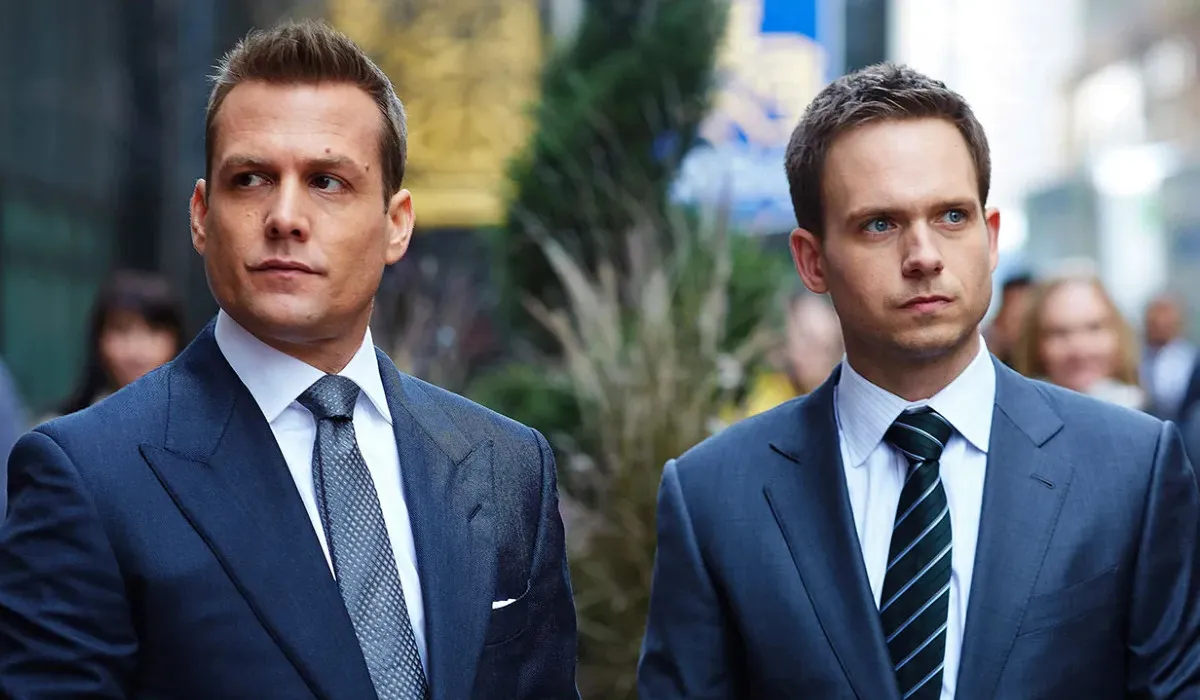As an aspiring supervillain turned vital member of the Bat Family, Harley Quinn (voiced by Kaley Cuoco) has had a wide variety of collaborators in Harley Quinn: The Animated Series. Surprising absolutely no one, a lot of them have been fairly misogynistic and sexist about Harley’s rise to power. However, no one has come close to topping the epitome of the Napoleon complex himself, Dr. Psycho (Tony Hale). The way his character behaves, even when he’s less relevant to the plot, shows how patriarchy rewards men. Lately, that’s been evident with Dr. Psycho’s podcast arc.
Audiences were introduced to this version of Dr. Psycho when a newly emancipated Harley decided to make her own supervillain team to take on the Legion of Doom back in season 1. Scraping the bottom of the barrel is where she found delightful fellow misfits like Clayface and King Shark. It’s also where she recruited former Legion member Dr. Psycho. Lex Luthor kicked Dr. Psycho out for using slurs in comments he made on TV about Wonder Woman and Giganta. Lex is no feminist himself, but even that was pushing it, and he has an image to maintain.
As one of the most talented and skilled people in her squad in the first two seasons, Harley puts up with Psycho out of necessity until he ultimately betrays her—at least twice. This lands Psycho in his current abode, Arkham Asylum, at the best possible time. The mayor’s new progressive prison reform program centers rehabilitation of villains through alternative means. This includes allowing inhabitants to explore creative endeavors and talk about their feelings.
Spoilers ahead for season 4, episode 7 of Harley Quinn: The Animated Series
Man with a mic

With these new resources, Dr. Psycho starts a Frasier-esque program called Chillin’ With Dr. Psycho. Callers (like poor Bane) seek advice and share their frustrations with the doctor live on-air. Psycho calls his modest set-up “an outlet for his judgemental rage.” We only saw the podcast once in season 3 before Psycho was temporarily snatched away for plot reasons. Now, in season 4, Psycho does a massive but predictable heel turn, like many entertainers trying to stay relevant.
Psycho rebrands himself and the podcast as Psycho Not Crazy With Dr. Psycho. The set looks a lot more flush with money and it’s unclear if it’s still being recorded at Arkham. He’s doing image rehabilitation (villain-style) for the Joker, who is trying to be an evil-doer again and claiming responsibility for the murder of a major character. While we never had a viewer count with Psycho’s previous show, the audience has clearly grown and expanded. Instead of using real names or villain aliases, it’s a bunch of not-so-subtle and very trolly usernames spamming the chat with insults, chides, and conspiracy theories.

This doesn’t necessarily mean Psycho was lying the whole time—it could be a relapse. The character was designed by Wonder Woman creator William Moulton Marston as a living representation of misogyny, but he could have genuinely changed. Then again, Psycho did make his original podcast about himself and never addressed some of his worst qualities. He just sought influence, and patriarchy is very profitable. Podcasting is a clear indicator of that in both Harley Quinn and real life. People will lean into the worst of humanity for a better payout thanks to the attention economy.
Harley Quinn is constantly tapping into discourse and reflecting it back via its villains and heroes. Many of the ways in which misogyny manifests for Harley and Poison Ivy are more subtle than anything Dr. Psycho says or does. However, it’s important not to overlook the overt sexism in contemporary culture, and Psycho provides that every time he rears his head.
This piece was written during the 2023 WGA and SAG-AFTRA strikes. Without the labor of the writers and actors currently on strike, the work being covered here wouldn’t exist.
(featured image: Max)










Published: Aug 30, 2023 01:31 pm